Genocide in the 21st century: ISIS invasion
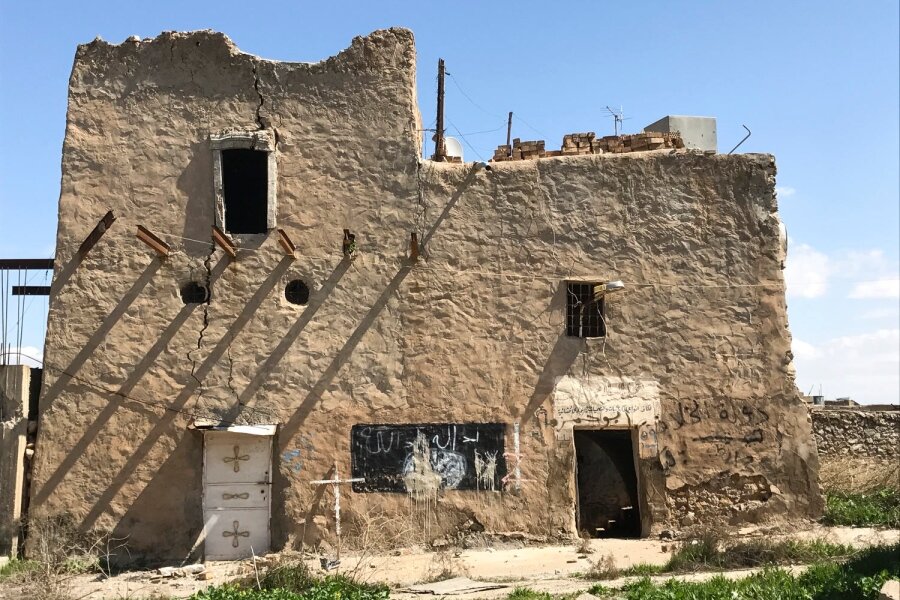
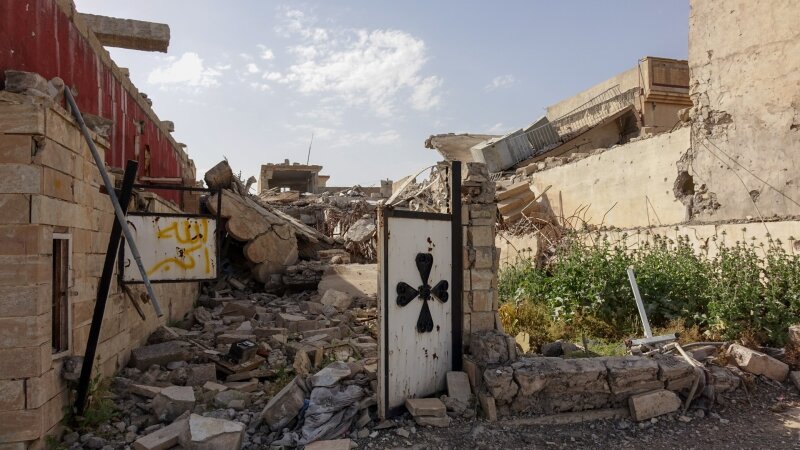
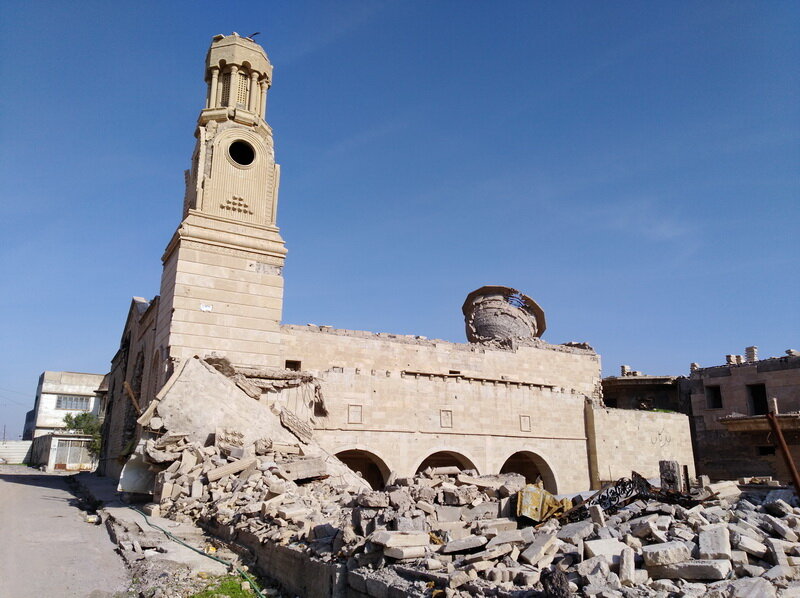
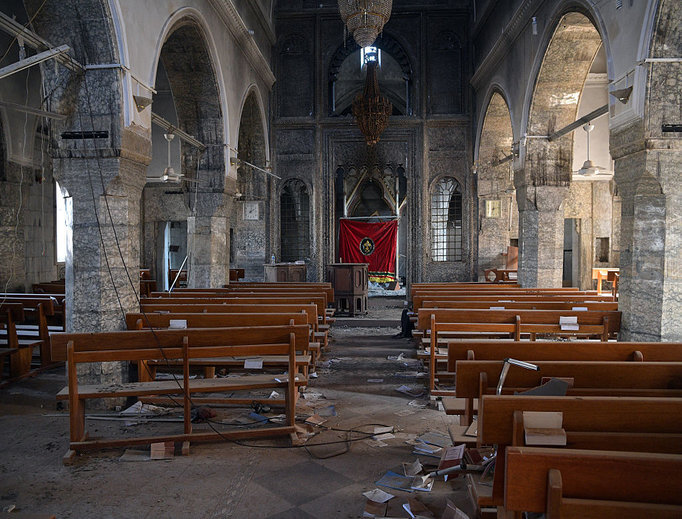
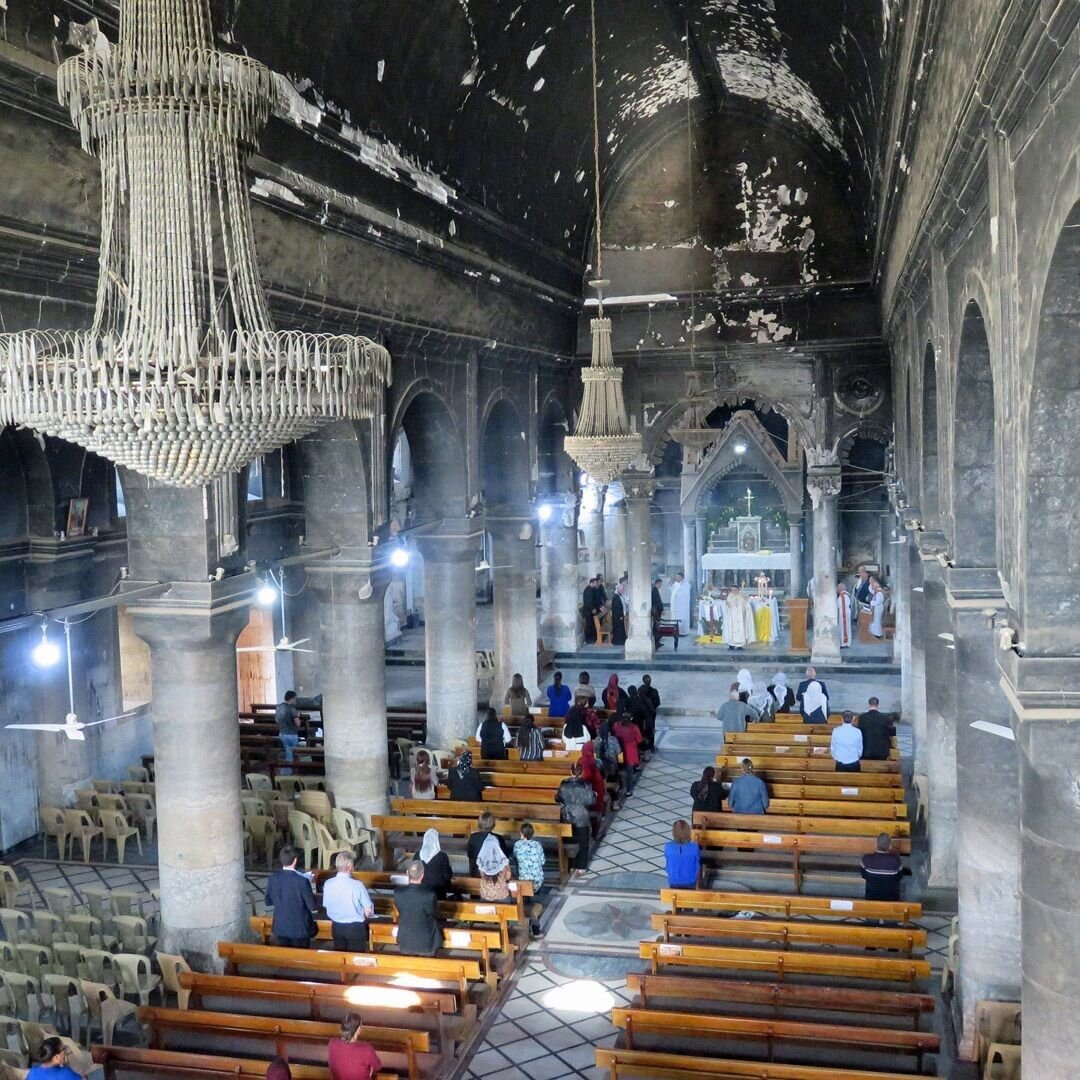
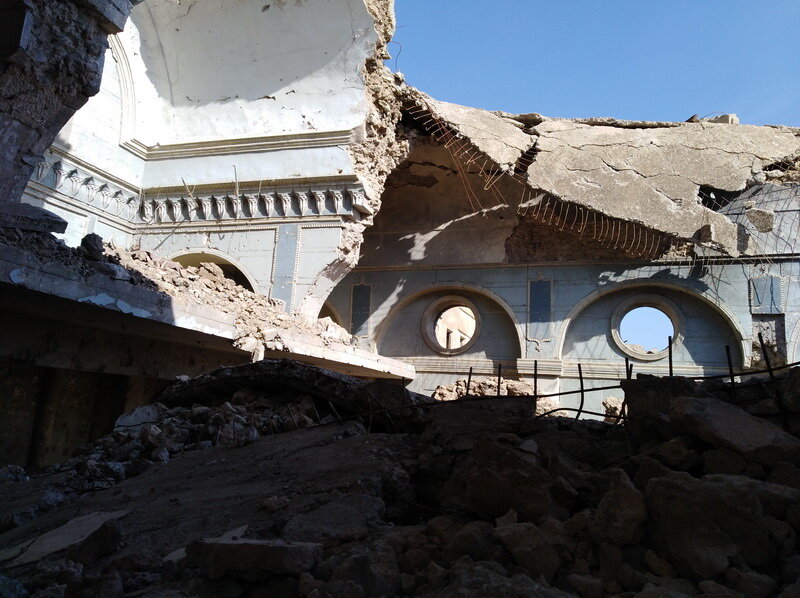
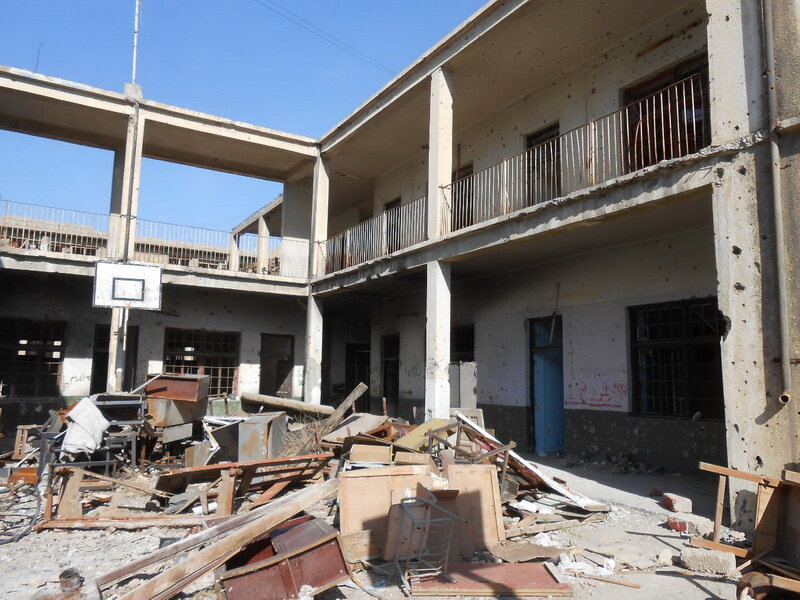
By Dr. Adhid Miri
Part II
The Nineveh Plains of northern Iraq are home to a diverse mix of minority ethnic and religious groups. Their roots, their heritage, their homes, and their most holy shrines are all right there in this brutal but beautiful land known as the “Cradle of Civilization.” It is located north-east of Mosul, and consists of three districts: Al-Hamdaniya, Al-Shekhan, and Telkaif. Most of its residents are Christians, Kurds, Yazidis and Shabak.
These minorities, already persecuted for centuries, came under the most severe threat to their existence in decades in 2014 as the Islamic State began attacking villages of first Yazidis, then Shabaks, and finally Christians. Abuses and the rapid expulsion of the native population followed with neither mercy nor justice.
When Mosul fell to ISIS and the Iraqi Army abandoned their positions around the city and neighboring districts, Peshmerga forces moved in and began to form a defensive line, promising to defend the area. However, late on August 6, the Peshmerga told Qaraqosh’s archbishop that they would not be able to defend the town and fled from their posts. The town was taken overnight.
The people had half an hour’s notice to leave Qaraqosh. The community had not prepared to evacuate, but when the bombs started falling, two children and a 30-year-old woman were killed, and many others were injured. This was a message to get out.
Most of the 50,000 residents fled, but approximately 400 people chose to stay behind. Some were captured by ISIS. Others were brutally murdered, their deaths broadcast on social media. Eye-witness reports confirm that those who were not able to escape were subject to torture, public executions, and crucifixions.
In addition to these acts of torture, Christian families from Qaraqosh had daughters who were kidnapped and sold into sexual slavery. They faced routine sexual violence by ISIS fighters and were often passed among men as “gifts.” Reports have not yet confirmed how many of ISIS’s sexual slaves were specifically Christian women, though some estimates indicate this number could be as high as 1,500. Within the Qaraqosh community, at least 75 women and girls were confirmed to be captured by ISIS.
As the militants continued to push forward toward the Kurdish capital Erbil, they left in their wake hundreds of thousands of displaced families. It was said that those they captured were forced to convert or die. Others speak of mass executions and kidnappings of women and children. With the havoc wreaked in these areas and families left homeless and even starving, facts are hard to ascertain, but global media was on the ground documenting the plight of these families’ flight into uncertainty.
The disputed territories
Positioned between Mosul, Iraq’s second largest city, to the east, the Kurdistan Regional Government (KRG) to the north, and the Syrian border to the west, the Disputed Territories encompass Khanaqin, Kirkuk, the Nineveh Plains, Tal Afar, Mandali, Tuz Khurmatu and Sinjar.
After facing such an existential threat, many within these minority communities responded by taking up arms. Multiple micro-militia groups sprung up among different minority factions across the Nineveh Plains in the name of community self-defense.
However, these groups were too small and too politically marginalized to stand alone in that hyper-competitive security and political environment. Each allied with larger security actors, including Kurdish forces, the Iraqi government in Baghdad, and southern Shi’a PMF, which put them in the middle of the ongoing Baghdad-KRG competition in the Disputed Territories.
Metropolitan Nicodemus Dauod Matti Sharaf, prelate of the Iraqi Syriac Orthodox Church, addressed this directly, stating, “We have had the problem with the Muslims for 1,400 years, not from now. This is the truth, but we do not say it as we want to live in peace. ISIS came to Mosul in 2014 but we experienced Islamism in Mosul four times before ISIS, from 2003 to 2014.
“ISIS is the fifth wave,” said Nicodemus, “because in 2005 they said in mosques in Mosul, in the neighborhoods, ‘Don’t buy the Christian houses, you’ll get them for free.’ That was 2005.”
Nicodemus was the last bishop to leave Mosul when ISIS invaded the city in 2014, having strong words for the West. For example, he stated that the developed world places the welfare of frogs ahead of Christians, that the West needs to wake up to the threat of Islamism, and he blamed past U.S. leaders and their allies for ruining his country.
Nicodemus has fears for the continuous emigration of families from the region, stating, “The hours are ticking fast; we have a very short window of survival.” He wants his people to stay in or near Erbil in Kurdistan for now, so they stay close to Mosul. He has hopes that they will gradually return.
“The KRG state is strong and protective of the minorities,” he has stated, “especially the Christians. We must strengthen the Christians in Kurdistan, since it is only one and a half hours away from Mosul.” The people there will be more inclined to return than those in Lebanon, Turkey, or Jordan. The immigrants in Australia, United States, Europe, and Norway will likely not return.
Daesh (ISIS) is still imbedded in the local thinking, political processes, and policies of the region. When 60 Christian families returned reluctantly returned to Mosul, their neighbors asked sarcastically, “Why did you come back?”
Cardinal Louis Raphael Sako, Patriarch of the Chaldean Church, has been advocating for the Christian community to stay in Iraq, stating, “The Arab villagers who support ISIS are still there; those who wanted to take our land and to take our villages…there is no strong government in Baghdad.
“Since 2003, we have lived without law. No country in the world can live in peace and stability without the rule and force of the law. There needs to be guarantees from the UN, to make political decisions, to say that Nineveh Plain villages are a safe zone, protected by international powers with international guarantees. If not, we will get another ISIS under a new name.”
Destruction of heritage
Nineveh was already an important urban center more than 4,000 years ago. At its height around 700 B.C., it was a capital of the Neo-Assyrian empire and the largest city in the world. It featured numerous temples and the sprawling 80-room palace of King Sennacherib, all surrounded by a wall 7.5 miles long punctuated by 15 gates.
The Arab Muslim, Arab Christian and modern Assyrian population of the area all trace their ancestry back to the ancient Assyrians. The Mashki Gate, known as the “Gate of the Watering Places,” may have been used to lead livestock to the nearby Tigris River. The Adad Gate takes its name from the Mesopotamian god of weather and storms.
Knowing the importance of this heritage site, ISIS destroyed the gates of Nineveh. While the gates were rebuilt in the 20th century, the rise of ISIS has involved the deliberate targeting of heritage sites as part of a broader strategy towards local communities in Iraq and Syria.
The damage inflicted on Mosul’s cultural heritage during the fighting to oust ISIS was severe. Parts of the Old City were devastated in the final phase of liberation, leaving behind destroyed monuments and buildings, demolished houses, damaged infrastructure, and unexploded ordnance. The historic urban spaces along the Tigris River have been destroyed, with an estimated 5,000 buildings in the Old City either razed to the ground or severely damaged.
Destruction of heritage is an integral part of the ISIS campaign. A mosque dedicated to the prophet Jonah inside the walls of Nineveh was destroyed by ISIS in July of 2014. Sculptures from the site were damaged during their rampage through the Mosul Museum in February 2015. They have also destroyed the city’s main libraries, containing centuries-old manuscripts.
Demographic and geographic changes
In November of 2016, Iraq announced the complete liberation of the Nineveh Plains from the control of ISIS. Operations led by the Iraqi security forces with the support of army aviation and the “international coalition” were part of the effort to restore Mosul from the grip of the terrorists.
The liberation of the Nineveh Plain from the control of ISIS did not herald a new dawn. Rather, it witnessed armed factions jump in to seize it, its wealth, and its voters. Although more than three years have passed since the liberation of the Nineveh Plain region, it is still hostage to partisan, political, sectarian, and factional rivalries.
Since the defeat of ISIS, there have been systematic plans to make demographic changes in the Nineveh Plain. Armed militia members continue to seize the properties and agricultural lands of Christians in the region. Confiscation of land, intimidation, and harassment by the Shabak, Hashed al-Shaabi, and the so-called “Christian” Hashed are out of control.
What is happening in Nineveh is a systematic ethnic cleansing. There are local and regional plans to move the entire Christian component out of the area. Hate speech spread by the Iranian-backed armed factions and fatwas from outside Iraq allow the militias to continue to intimidate the people and seize their property. The Shabak militia, which is affiliated with the Shabak component, a minority in Nineveh, seeks to seize position, lands, money, and weapons with Iranian support. The leader of the Babylon militia, Rayan al-Kaldani, colludes with them to seize the property of his fellow Christians in the region.
Obviously, the security situation in northern Iraq is very fragile. The clock is ticking on the fate of the Christian and Yazidi communities there. Hosts of questions abound and there is an urgency for taking immediate action. Security measures, and who should control that security are top concerns for everyone. Legal protection, constitutional rights, and property rights are other concerns. The fate of the church properties and the properties of the citizens of Mosul hang in the balance.
Who will ultimately administer the region? The Iraqi government? The KRG? The Americans? The U.S. plan is still a mystery, even as more troops have recently been deployed to Iraq.
Sources include: Yousif Kalian; Michael Youash; Frank Chalk, Holocaust and Genocide Studies; Zaid Salim, The New Arab; Saad Salloum, Minorities in Iraq; Joseph Slewa, Sout Al-Iraq; Marla Ruzicka, Iraq war; and David Phillips. Special editing by Jacqueline Raxter.
